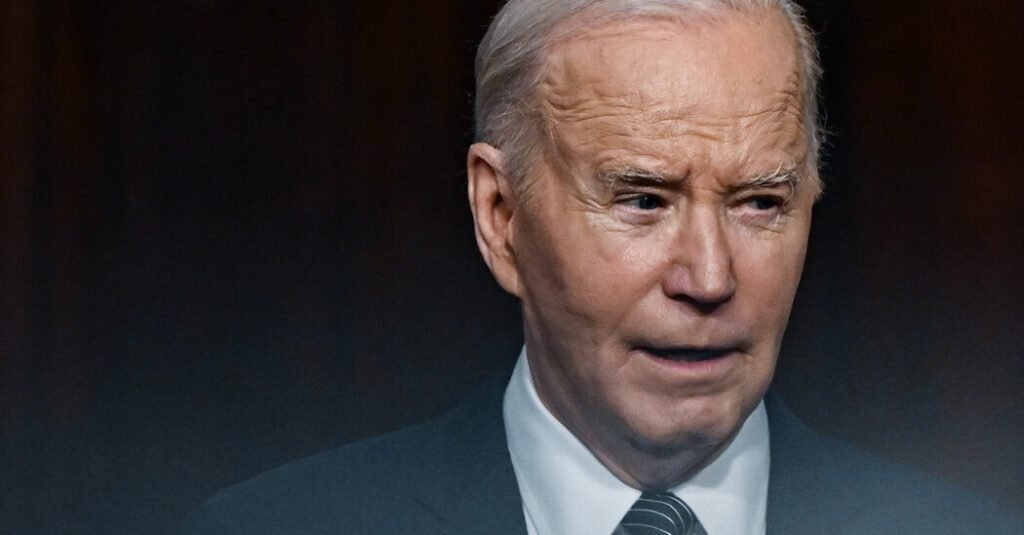President Biden spoke with Israeli Prime Minister Benjamin Netanyahu on Thursday, three days after international aid workers were killed in an Israeli strike, as senior US officials said his frustration with Israel’s actions in Gaza had come to an end.
Mr. Biden’s anger and frustration with Israel’s handling of the war has boiled over in recent weeks, said a senior administration official who discussed the planned call and was not authorized to speak publicly. On Tuesday, the president said he was “outraged and devastated” by the previous day’s strike in Gaza that killed seven aid workers, including an American, who were trying to bring food aid to civilians.
It was not immediately clear what changes in US policy towards Israel, if any, would accompany the intense criticism and anger of Mr Biden and his top officials. Defense Secretary Lloyd J. Austin III also expressed outrage in a call Wednesday with his counterpart Yoav Gallant, Israel’s defense minister, according to the Pentagon.
Asked about the ramifications for Israel after the outrage, John F. Kirby, the White House national security spokesman, said it was too early to tell as Israel was still investigating the strike.
“I’m not ready at this point to speculate on anything we may or may not do. You know, we’ll have to wait and see what the investigation says,” Mr. Kirby told reporters in Washington. “We continue to support Israel’s ability to defend itself against this sustainable threat. And this will continue.”
World Central Kitchen, the organization behind the convoy that was attacked, said in a statement Thursday that it was calling for an independent, third-party investigation into the strike that killed its workers. The group urged the governments of Australia, Britain, Canada, the United States and Poland, whose citizens were among the victims, to join in demanding an external investigation.
The group suspended its operations in Gaza after the deaths, and other aid groups said they were also suspending theirs or being more cautious while assessing security risks. These actions are a major setback to already difficult efforts to get food into the enclave, where famine-like conditions are widespread and civilians have faced severe deprivation in six months of war.
Mr Netanyahu acknowledged Israel’s responsibility in a video statement the day after the strike, calling it a “tragic case of our forces unintentionally hitting innocent people”. It was a rare admission of error and expression of regret from a leader who has strongly defended Israel’s decisions in the war.
“It happens in war,” he said in the statement. “We’re looking into it fully, we’re in touch with the governments and we’re going to do everything we can to make sure this doesn’t happen again.”
Mr. Biden, in his statement that day, urged Israel to conduct a swift investigation into the strikes, ensure accountability and make the findings public. Mr. Kirby said on Wednesday that the United States did not plan to conduct its own separate investigation.
Some of Mr. Biden’s most ardent supporters in his party have been pressing the president to put conditions on the expensive weapons the United States supplies to Israel. “I hope this will be the moment the president changes course,” said Sen. Chris Van Hollen, D-Maryland.
On Tuesday, British Prime Minister Rishi Sunak spoke by phone to Mr Netanyahu, telling his Israeli counterpart he was “appalled” by the strike that killed three Britons and that the situation in Gaza was “increasingly unbearable”. British Government announcement.
Katie Rogers contributed to the report.

